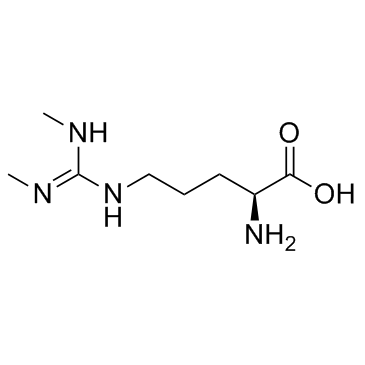| References: |
SDMA is the structural isomer of the cardiovascular risk marker asymmetric dimethylarginine, as an endogenous marker of renal function. SDMA does not directly inhibit NOS but is a competitor of arginine transport. SDMA is primarily eliminated by renal excretion and is a promising endogenous marker of glomerular filtration rate. SDMA inhibits dose dependently the NO synthesis in intact endothelial cells, whereas it has no effect on protein expression of NOS. SDMA is involved in the inflammatory process of chronic kidney disease, activating NF-κB and resulting in enhanced expression of IL-6 and TNF-α.SDMA is highly stable in serum and plasma, and the assay demonstrates excellent analytical performance. In unaffected dogs, SDMA remains unchanged whereas in affected dogs, SDMA increases during disease progression, correlating strongly with an increase in sCr and decrease in GFR. Chronic SDMA infusion leads to a significant increase of SDMA levels in mice, but the GFR did not change at 4 weeks. No histological changes are observed, particularly no effect on fibrosis or endothelias nitric oxide synthase expression. There is neither an effect of SDMA on systolic blood pressure nor on ejection fraction. |























